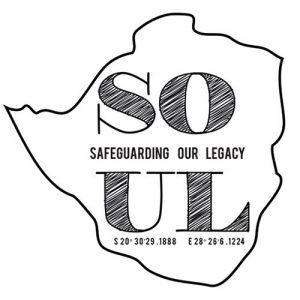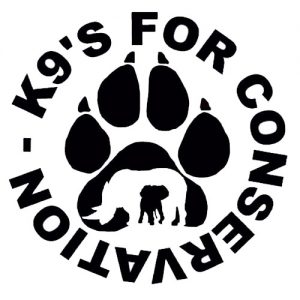The SOUL (Safeguarding Our Legacy) Trust has been formed to be the legal entity for the K9’s For Conservation project, outlined below. The Trust has a distinguished Board of Trustees that include prominent figures in the conservation, law enforcement, and legal fraternities.
Objective;
To establish a canine base of operations in Zimbabwe to provide support to National Parks, the Zimbabwe Republic Police, Conservancies and Trusts that are dealing with poaching issues. These canine teams will be trained at a central location and then deployed into a variety of areas to detect illegal wildlife goods and provide support in the apprehension of poachers.
Goals;
The short-term goal is to build a kennel and train 3-5 handlers. With these handlers and proactive coordination with the various agencies, a flexible deployment operation can be designed and implemented to ensure that the teams increase the chances of initial success in apprehending poachers. The credibility of the teams is vital to acceptance by the various authorities that will be required to embrace these new capabilities to allow expanded areas of operations. The long-term goals are to identify key locations to deploy K9 teams on a rotary basis providing both tracking and enhanced detection support to relevant agencies. These locations will be identified as the illegal wildlife trade develops and evolves. Critical support from ZRP and NP leadership will be sought throughout the development of the program, with the goal of securing locations in critical areas to reduce reaction times.
Concept;
Currently there are little to no canine resources available to the greater counter-poaching community. The few agencies that have the luxury are remotely located and lack the expertise to maximize the potential of the capabilities. Canine handling is a team requirement that requires both significant training for both the handler and the canine. A fully trained team is vastly more effective than a team that has either a well-trained handler or a well trained canine. The handlers energy should be reflected in the dog which raises the point of the development of a well selected handler. This is just as important as the selection of the canine.
Poachers are able to gain access and conduct operations, often successfully. Visual trackers are successful, however run into issues during inclement weather and lose momentum as light deteriorates. Canine teams can enhance the follow-up, identify start areas/break-ins and be used to provide additional evidence in the apprehension leading to longer sentences. Dogs can be trained to multi task such as identify Rhino horn, Ivory, snares, bush meat detection and track. However it is important to note that the more capabilities a dog has, the more training is required on a day to day basis to maintain the standards of efficiency.
The various capabilities are:
The canine is trained to follow a track at a basic level over 5 kilometres that is 2 hours old with 2 ninety degree turns. This capability can be deployed in one of two roles. Intelligence led entry points are identified and the canine team can be employed to track the poachers prior to them harvesting illegal goods. The team can also be used immediately after poachers have illegally harvested wildlife goods, ensuring a faster follow up element that will increase the counter poaching teams chances of apprehending the criminals.
The canine will search an open area for a target odour (Ivory, rhino horn) off leash under direct control of the handler. The canine will identify the target odour with a passive indication.
The canine team can be deployed to strategic areas to conduct searches of vehicles. This capability will allow the canines to provide both a visual and psychological deterrent as well as limiting access routes to poachers forcing them to find alternative means.
Canine teams can be deployed to airports, bus terminals and ferry ports to conduct searches of personal belongings that may be used to transport illegal wildlife goods.
Project Outline;
This project will be broken into the following 5 phases. The initial phase has been to set up The SOUL Trust, with an account into which funding can be deposited and managed, with proper accounting and auditing practices in place.
Phase 1;
This is the initial phase where a kennel location will be identified and constructed. The kennel will be designed into 4 blocks for potential expansion at later dates. A six kennel building with imprinting and veterinary areas will be constructed to provide a healthy life and immediate training and veterinary facilities. As demand increases the kennel can be expanded in multiples of six to supply training and resources to local, national and regional agencies.
Granite Ridge P/L T/A The Farmhouse has agreed to house the kennels and training facility. The owners T.A.J. O’Hara and Dr. Kyle Marie Good are both conservation minded and have spent many years involved with various conservation projects. The location is centrally located for several of the rhino and elephant populations in Zimbabwe. An agreement between the Trust and Granite Ridge P/L will need to be constructed to protect both parties. As the Farmhouse is a tourism facility, the Trust may gain extra sustainable income due to eco tourism by making tourists aware of the project, and collecting a donation for allowing tourists to witness the training of the dogs.
Kennel Construction: Time frame = 45 Days
Phase 2;
3-5 canines will be procured and shipped to the kennel facility where acclimation can begin and basic training can start. A solid foundation will be required in obedience and basic tracking/detection prior to handler allocation. This training will be conducted over 3-4 weeks immediately prior to the handlers arriving for their training course. Phase 2 through 5 will have dogs to be ready for deployment with handlers.
Phase 3;
Successful handler selection is extremely important to ensure the health and increased standard of the future capability. The handlers that successfully graduate from the course will be working independently from the kennel management and will be required to have great natural ability, empathy, initiative and willingness to fully trust the canine. Handlers will need to be educated, physically fit and have experience in regular counter-poaching operations. Counter poaching operations are dangerous and require clear headed personnel to make appropriate decisions at a moment’s notice. On top of all of this they will be required to ensure the health and well being of their canine partner and maintain the standards of efficiency.
Phase 4;
Once the kennels have been built, training areas are established, canines procured and the handlers are selected, phase 4 can begin.
The Tracker and Illegal Wildlife Goods Detection Dog (IWGDD) course will be a 12 week course conducted at the central training kennel. During this course a maximum of 10 handlers (1:5 student instructor ratio) will be fully instructed and tested in the following areas:
- Illegal Wildlife Good detection (snares, bush meat, rhino horn, ivory)
- Follow up tracking• High risk tracking • Basic unleash obedience • Off leash obedience • Live fire exercises • Environmental exposures such as vehicles, aircraft, wildlife and excessive distracters • Kennel management • Veterinary first aid • Certifications after course completion, the handlers will be certified independently to ensure that the teams are able to legally conduct counter poaching operations. This certification will be conducted over a one week period, which will cover the various disciplines of the IWGDD (Illegal Wildlife Goods Detection Dog) course.
Phase 5;
Once the teams have completed their course and certified with the new capabilities and operational training then deployment will commence with preselected agencies. They will work the teams in a live environment alongside operators that have no canine experience. This phase will be used to set the teams up for future success. It is important that the initial deployments are supported fully by the security element working alongside the handler. The success of these operations will be highly publicized giving recognition to the Zimbabwe Republic Police and or the Zimbabwe National Parks and Wildlife Authority.
If you would like to donate towards this project please visit our donation page by clicking the button on the right.


